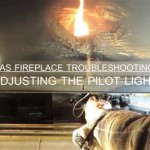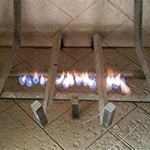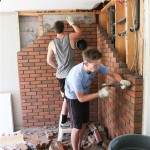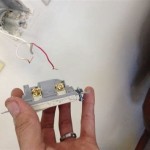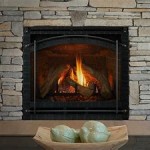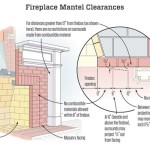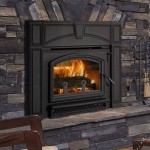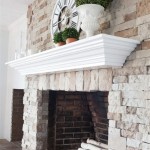Understanding Fireplace Flue Liners: Protection and Performance
A fireplace offers warmth and ambiance to a home, but its safe and efficient operation relies heavily on a component often hidden from view: the flue liner. The flue liner is a crucial structural element within a chimney, acting as a protective barrier and ensuring proper venting of combustion byproducts. This article delves into the purpose, types, installation, and maintenance of fireplace flue liners to provide a comprehensive understanding of their essential role.
The primary function of a flue liner is to protect the chimney's masonry from the corrosive effects of combustion gases. Smoke from burning wood or other fuels contains acids, creosote, and other potentially damaging substances. These substances can gradually erode the mortar joints and bricks of the chimney, leading to structural instability and costly repairs. Without a properly functioning flue liner, the chimney's lifespan is significantly reduced, and the risk of fire and carbon monoxide poisoning increases.
Furthermore, the flue liner helps to contain heat within the chimney, improving the draft and preventing heat transfer to combustible materials in the surrounding walls and roof. A well-insulated flue liner contributes to a more efficient and safer fireplace operation. It also helps to prevent condensation of combustion gases within the chimney, which can further contribute to the deterioration of the masonry.
The importance of a sound and properly installed flue liner cannot be overstated. Regular inspections and maintenance are vital to ensure its continued effectiveness and to prevent potentially dangerous situations. Understanding the different types of flue liners available is also crucial for making informed decisions regarding installation or replacement.
Types of Fireplace Flue Liners
Several types of flue liners are available, each with varying characteristics, advantages, and disadvantages. The selection of the appropriate flue liner depends on factors such as the type of fuel burned, the existing chimney construction, and budget considerations.
Clay Tile Liners: Clay tile liners are one of the most common and historically used types of flue liners. They are typically made of vitrified clay and are relatively inexpensive. Clay tile liners are durable and can withstand high temperatures. However, they are also susceptible to cracking and spalling due to thermal expansion and contraction, especially in areas with significant temperature fluctuations. A significant drawback of clay tile liners is that they are installed in short sections, leaving seams which are potential points of weakness and leakage, especially when exposed to acidic condensation.
Metal Liners: Metal liners, typically made of stainless steel or aluminum, are a popular alternative to clay tile liners. Stainless steel liners are highly durable and resistant to corrosion, making them suitable for various fuel types, including wood, gas, and oil. Aluminum liners are typically used for gas-burning appliances only, as they are not as heat-resistant as stainless steel. Metal liners are flexible and can be easily installed in existing chimneys, even those with offsets or bends. They can also be insulated, improving draft and reducing heat transfer.
Cast-in-Place Liners: Cast-in-place liners involve pouring a cement-like mixture into the existing chimney flue. This method creates a seamless, durable liner that conforms to the shape of the chimney. Cast-in-place liners are highly resistant to cracking and corrosion and can strengthen the overall chimney structure. However, this method is more expensive and labor-intensive compared to installing pre-fabricated liners. It also requires specialized equipment and expertise.
Installation Considerations
Proper installation of a flue liner is crucial for its performance and longevity. Whether installing a new liner or replacing an existing one, it is essential to follow manufacturer's instructions and local building codes.
Before installation, the chimney should be thoroughly inspected to identify any structural issues or obstructions. Any necessary repairs should be completed before installing the flue liner. The flue liner should be sized appropriately for the fireplace or appliance it serves. An undersized liner can lead to poor draft and increased creosote buildup, while an oversized liner can result in condensation problems.
When installing metal liners, it's imperative to ensure proper insulation. Insulation helps to maintain flue gas temperatures and prevents condensation. Insulation also reduces the risk of heat transfer to combustible materials surrounding the chimney. Correctly sealing the connections between liner sections is critical to prevent leaks and ensure a gas-tight system. If using a cast-in-place liner, the chimney must be properly prepared, and the mixture needs to be thoroughly mixed and poured to avoid voids or weak spots.
Due to the complexity and safety considerations involved, it is generally recommended to hire a qualified chimney professional for flue liner installation. They have the knowledge, experience, and equipment to ensure the job is done correctly and safely.
Maintenance and Inspection
Regular maintenance and inspection are essential for maintaining the integrity and performance of a fireplace flue liner. Routine cleaning removes creosote and other debris that can accumulate in the flue, reducing the risk of chimney fires.
The frequency of cleaning depends on factors such as the type of fuel burned, the frequency of fireplace use, and the efficiency of the appliance. As a general guideline, chimneys should be inspected at least once a year, and cleaned as needed. A professional chimney sweep can perform a thorough inspection and cleaning, identifying any potential problems such as cracks, spalling, or corrosion.
During an inspection, the flue liner should be carefully examined for any signs of damage. Cracks in clay tile liners, corrosion in metal liners, or deterioration in cast-in-place liners can compromise their effectiveness and create safety hazards. Any necessary repairs or replacements should be performed promptly to prevent further damage and ensure the continued safe operation of the fireplace. Water penetration is a common cause of flue liner problems, so it's crucial to ensure the chimney has a properly functioning chimney cap to prevent rain and snow from entering the flue.
By understanding the purpose, types, installation, and maintenance of fireplace flue liners, homeowners can ensure the safe and efficient operation of their fireplace while protecting their home from the risks of fire and carbon monoxide poisoning. Regular professional inspections and timely repairs are essential for maintaining a safe and enjoyable fireplace experience.

Is A Chimney Flue Liner Good Investment For Homeowners

Lining Fireplaces Kreider Masonry Inc

Why Heatshield Is The Best Chimney Reliner Charlotte Nc

Flue Repairs And Chimney Relining A 1 Pro

Flue Liners Chimney Liner Options Stainless Steel

How To Line A Chimney With Flexible Flue Liner

Chimney Liners Usa Size A Fireplace Liner

What Is Chimney Relining And It Necessary

Chimney Flue Monmouth County New Jersey

8 Advantages Of Using A Clay Chimney Liner

